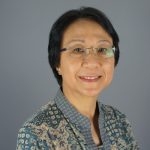Global migration’s impact on mission strategy has become a growing focus in global mission.
‘Empowering believers already on the move to be frontline kingdom workers is essential in influencing nations for the gospel’, write Harvey Thiessen, Area Leader for Oceania North America with OM, and Alena Popova, a data research analyst with Scatter Global. In their article ‘Passing the Baton to Evangelical Migrants’, they examine where these workers could have the greatest impact by looking at the migration data of the United Nations and the data of believers moving to the least reached geographic zones. Discipling, mobilizing, training, and supporting them ‘will revolutionize how migrant workers see themselves and their role’ as witnesses for the gospel wherever God has sent them. ‘The Filipino church has been at the forefront of this effort in the last decades and has learned much in activating migrant workers.’ But it takes an intentional journey of mobilization to achieve that as shown in the next article.
In ‘Why Mission Mobilizers Need Foundational Training’, Jojie Wong emphasizes the need for ‘strategic and biblically sound missions mobilization’ for mission agencies and churches in the Philippines, to grow from an emerging mission context to maturity in mission engagement. But what is lacking is foundational training focused on ‘the biblical basis for mobilization, examination of current practices, and unarticulated expectations on mobilization’ that will better equip pre-field missionaries. Jojie, with her many years of experience in international mission mobilization and leadership development with OMF, was able to do a critical analysis of the mission movement in the Philippines, her home country. She provides lessons learned which are very helpful to other emerging mission contexts in the Global South.
Joseph Handley, President of Asian Access, strives to develop leaders to accelerate mission movements. ‘Convinced that a collaborative, communal approach to leadership that empowers multiple centers of influence’ is the way forward for global mission in this era of an interconnected yet increasingly polarized world, he proceeds to expound ‘six important themes that comprise an emerging new theoretical leadership model’ that he calls ‘Polycentrism as the New Leadership Paradigm’. The six themes are: charisma, collaborative, communal, relational, freedom, and diverse. They could be used as guideposts as we do an audit of our missional leadership development.
Polycentric mission leadership ‘draws from a rich diversity of wisdom’ by paying attention to a broad ‘array of voices of leaders representing local and regional constituencies’. We hear some of these diverse voices from global perspectives, emphasizing ‘how racism under its many shades can desensitize our conscience and weaken our conviction’ in Part-two of the article ‘Racism and the Great Commission’. The authors, Jennifer Javed Khan (Head of Senior School, Pakistan), Rebecca Yin Foo (Clinical Psychologist and Youth Counsellor, Australia), Paul Lewis (Tertiary staff and Apologist, SCFSU Jamaica), and Susan Ann Samuel (Lawyer at the District Court, India), share deeply from their personal encounters. Out of their strong conviction of the biblical concept of one human race created by God and biblical lament as the rightful response, they challenge the global church ‘not just to preach the gospel but also demonstrate Christ’s love for others, whether they have the same skin colour or not.’ For ‘in God’s kingdom, it has never been about colour, tribe, ethnicity, class, language, creed, or religion.’
May we seek first the kingdom of God and his righteousness as kingdom people and workers wherever we are and in all circumstances.
Lausanne Global Analysis is also available in Portuguese, Spanish, and French. Please send any questions and comments about this issue to analysis@lausanne.org. The next issue will be released in July 2021.

